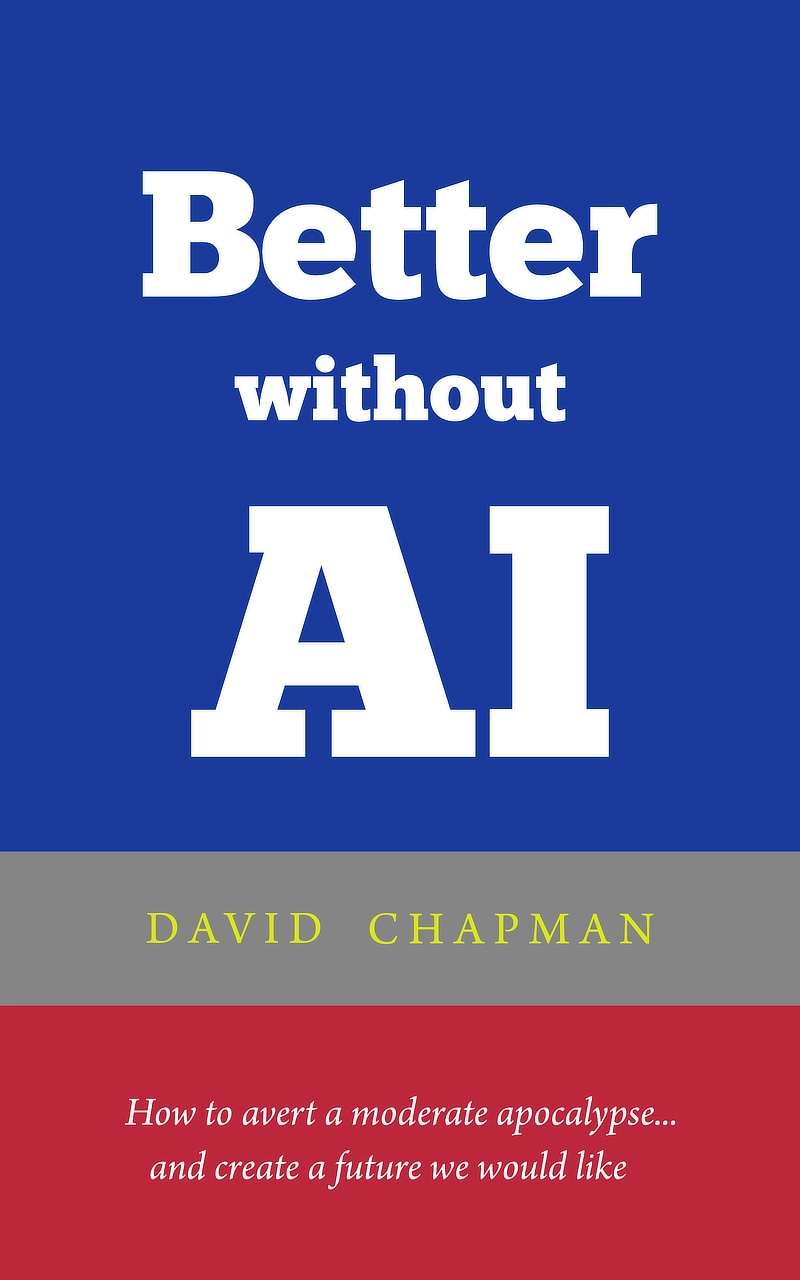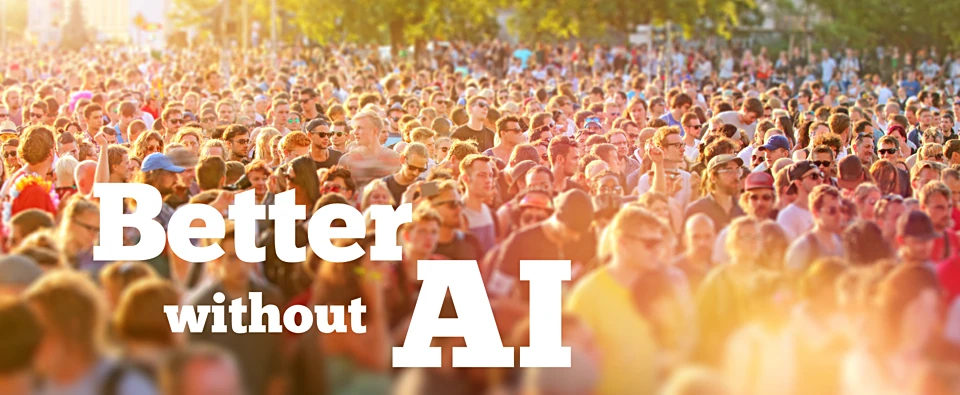
Better without AI explores moderate apocalypses that could result from current and near-future AI technology. These are relatively overlooked risks: not extreme sci-fi extinction scenarios, nor the media’s obsession with “ChatGPT said something naughty” trivia. Rather: realistically likely disasters, up to the scale of our history’s worst wars and oppressions.
Better without AI suggests seven types of actions you, and all of us, can take to guard against such catastrophes—and to steer us toward a future we would like.
Better without AI is available as a paperback, on Kindle, or for free in full here on the web. You can start reading now, read the blurb first, or check out the table of contents.
This web site contains, in addition to the main book:
- Gradient Dissent, a more technical exploration of the defects of current AI technologies
- Standalone essays about artificial intelligence that are not included in the book
- A metablog of news, views, and commentary
The blurb
Better without AI is a call to action. You can participate. This is for you.
The enormous transformational potential of artificial intelligence has long been dismissed because AI itself sounds like science fiction. That is no longer possible. Fluent new text generators, such as ChatGPT, have suddenly shown that powerful AI is here now. We may respond with excitement for opportunities, concern with risks, or both.
This book is about overlooked risks—not malevolent robots, but “moderate apocalypses,” which could result from recent and near- future technologies. AI systems we cannot understand are already making major social and cultural decisions for us. That may crush our ability to make sense of the world—and so our ability to act in it. Feeling dazed and lost, we may descend into pervasive helplessness. Or, we may revolt against the machines—and in so doing, we may destroy systems we depend on for survival.
Can we get the benefits of technological breakthroughs without succumbing to the risks? This book explains seven practical actions we can take to guard against disasters. Acting now is the best way to steer away—and perhaps toward a remarkably likable future. You, and everyone, can join in this effort.
The most important questions are not about technology but about us. What sort of future would you like? How might AI help get us there? What is its role in that world? What is your own role in helping that happen?
Better without AI is by David Chapman. He holds a PhD in artificial intelligence. His previous book on the topic is Vision, Instruction, and Action.
